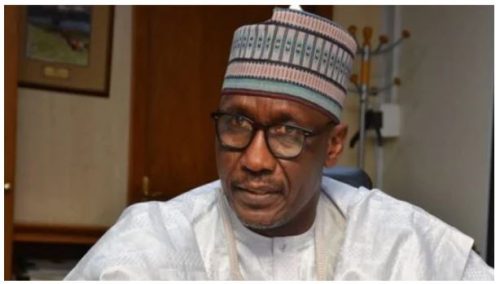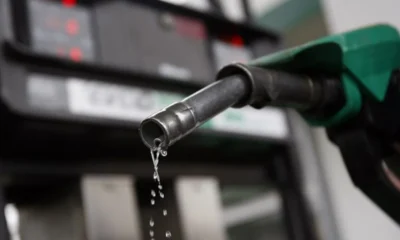Following the Federal Government’s decision to continue subsidizing Premium Motor Spirit, often known as gasoline, the Nigerian National Petroleum Company Limited may deduct nearly N1 trillion from the Federation Accounts Allocation Committee during the next six months.
According to data received from the oil company on its subsidy deductions in 2021, the amount deducted monthly from FAAC by the NNPC was higher during periods when crude oil prices were higher.
Economists corroborated this, explaining that the higher the worldwide price of crude oil, the more the amount to be withdrawn from FAAC by the NNPC.
They also indicated that the amount of gasoline consumed in a given month contributed to the amount spent on subsidies, but that the global crude oil price was the most important impact.
The NNPC maintains an adequate supply of refined petroleum products by importing the commodities as the sole importer of PMS and supplier of last resort.
The price of PMS is not deregulated by the Federal Government because it is sold at filling stations for between N162 and N165 per litre, significantly less than the true cost of the item.
Mele Kyari, the NNPC’s Group Managing Director, indicated in June 2021 that the price of petrol should be higher than N280/litre, despite the fact that the product has been subsidised and supplied at N162/litre since last year.
The subsidy spent on each litre of petrol consumed in Nigeria is therefore recovered by NNPC through its monthly deductions from its remittances to FAAC.
An analysis of the monthly FAAC deductions in 2021, captured by the NNPC as under-recovery of PMS/value shortfall, for instance, showed that the oil company deducted N25.37bn from FAAC in February 2021 when the average price of Brent crude was $62.28/barrel.
But in June of the same year when the price of Brent climbed to $73.16, the national oil firm reported that it spent N164.33bn on subsidy in that month.
Notably, between June and November 2021, a period of six months, the oil firm deducted N888.13bn from FAAC being subsidy spent on petrol imports. This comes to about N148bn monthly on average.
The average cost of Brent crude during the six-month period, according to figures obtained from Statistica, a global statistical firm, was put at $76.4/barrel.
However, the price of Brent has been on the rise since this year, following efforts by the Organisation of Petroleum Exporting Countries and its partners to boost the cost of the commodity.
The price on Tuesday, for instance, was $88.01/barrel as of 8.10 pm Nigerian time, a development that meant that the NNPC would spend more on subsidy this month and subsequent months should oil prices remain high globally.
According to experts, if the oil price remains above $80/barrel, the national oil company may be incurring about N170bn monthly on the average as subsidy payments. This will amount to about N1,020,000 in six months.
The NNPC has been the sole importer of petrol into Nigeria, as other marketers stopped importing the commodity due to their inability to effectively access the United States dollar.
“Of course, the NNPC will spend more on subsidy this year because the crude oil price has been increasing and the higher the price of crude, the higher the amount to be spent on subsidy,” the Chief Executive Officer, Centre for the Promotion of Private Enterprise, an economic think tank. Dr Muda Yusuf said.
He added, “In fact, about N2.5tn might be spent on subsidy this year, meaning that about half of that amount could be spent in six months and this means hard times for states because the funds will be deducted from FAAC as usual.”
Yusuf described the reversal of subsidy removal by the government as a policy somersault that was not good for the oil sector.
He said, “This is another instance of policy somersault. It also reflects the absence of political will to reform the oil and gas sector. This has been a struggle over the past few decades. Perhaps there are entrenched and powerful interests working against the Petroleum Industry Act.
“These forces have succeeded in upturning a major economic reform programme. It is a sad development. This would further aggravate the political and policy risk of investing in Nigeria.
He added, “The oil and gas sector is one sector that has been starved of investment for several decades because of policy and regulatory issues. Regrettably, at a time when we thought we had turned the corner, we are now faced with the stark reality of a complete suspension of a major instrument of reform.
“It is certainly not good for our perception by investors as an investment destination. It will affect our country risk rating. It also implies that the implementation of the Act will not commence in the life of the present administration.
“It is difficult to predict what the succeeding administration will do. Meanwhile, attracting investment into the oil and gas space will be extremely difficult going forward.”
Listing other drawbacks of the suspension of the plan to remove fuel subsidy, he stated, “The petroleum products smugglers, beneficiaries of the fiscal leakages in the fuel subsidy ecosystem and their collaborators will continue to smile to the banks for the next one and half years.
“Some states would struggle to pay salaries, especially states that are heavily dependent on federal allocation. Some may have to lay off some of their workforces. Many will struggle to meet their financial obligations as sub-nationals.
“Macroeconomic risks would become elevated as fiscal deficit and borrowing significantly surpass projections in the 2022 budget. The CBN may have to continue to cover financing gaps through ways and means. This of course has serious inflationary implications. The macroeconomic outcomes would adversely impact on the exchange rate, leading to further depreciation of the currency.”
Corroborating this view, private sector stakeholders under the umbrella of the Nigerian Economic Summit Group say the subsidy being paid by the government for Premium Motor Spirit, commonly known as fuel, is not sustainable.
The group spoke at the launch of the NESG 2022 Macro Economic Outlook report on Tuesday in Abuja titled, “The Last Mile: Reforms towards significant improvement in national economic outcomes.”
The report highlights reforms that will sustain the recovery of the economy and ensure improved social inclusion.
The Chief Executive Officer, NESG, Laoye Jaiyeola, commended the government for passing the Petroleum Industry Act but stressed the need for collaboration with critical stakeholders in the oil and gas sector to ensure implementation.
He noted that the proposed fuel subsidy removal as stipulated in the PIA would have significant impacts on the economic outlook for 2022.
Jaiyeola said the continued implementation of the fuel subsidy was not sustainable as it was introduced as a short-term palliative.
“When the fuel subsidy was introduced it was supposed to be a short-term palliative, but it has gone beyond intended purposes.
“The truth of the matter is that this nation can’t afford a continuation of this subsidy, because of the implications. Nigeria has a revenue challenge and how we use our revenue matters a lot,” he said.
On his part, the Chairman of the NESG, Asue Ighodalo, disclosed that as of November 2021, 91 million Nigerians were living below the poverty line.
He said, “The World Bank estimates that an additional one million people were pushed into poverty in Nigeria between June and November 2021, resulting in a total of about eight million people being relinquished to poverty in 2021 and bringing our nation’s poverty headcount to about 91 million.
With campaigns for the 2023 general elections beginning to manifest, the NESG boss predicted that there would be increased spending during the year as a result of the forthcoming election.
This he said, could lead to tightening of monetary policies by the government, relegate focus on the economy and result in the stagnation of recovery.
FG plans PIA amendment, extends subsidy removal by 18 months
Meanwhile, the Federal Government has proposed an extension of the subsidy removal implementation period by another 18 months.
The Minister of State for Petroleum Resources, Timipre Sylva, disclosed this to State House correspondents on Tuesday during a special briefing on fuel subsidy at the Presidential Villa, Abuja.
This comes barely 24 hours after the Minister of Finance, Budget and National Planning, Zainab Ahmed, announced the suspension of the planned petrol subsidy removal.
Speaking during a meeting held at the National Assembly in Abuja on Monday, Ahmed had said the suspension would be until further notice.
However, the Minister of State for Petroleum Resources, Sylva, who was also at the meeting with the lawmakers on Monday, said the Federal Government was proposing an 18-month extension of the statutory period for the implementation of the removal of subsidy on PMS.
According to Sylva, the extension will give all stakeholders adequate time to carry out the implementation in a way that ensures that all necessary modalities are in place to cushion the effect of the subsidy removal, in line with prevailing economic realities.
He explained, “We also see the legal implications. There is a six-month provision in the PIA, which will expire in February, and that’s why we are coming out before the expiration to say, this is what we intend to do, and if we listen carefully, I also mentioned to you that we’d engage the legislature.
“We believe that this will go to the legislature; we will apply for some amendment of the law so that we will still be within the law. We are proposing an 18-month extension, but what the National Assembly will approve will be offered. We will propose an 18-month extension, and then it’s up to the National Assembly to look at it and then pass the amendment as they see fit.”
The minister, who debunked notions that the FG’s decision to suspend the subsidy removal had to do with the 2023 elections, also said talks were ongoing with labour unions, and a comprehensive policy direction would be made available in July.
Asked if the forthcoming elections influenced the decision, Sylva said, “Of course not. It’s just the human face of the government and the President especially. He wants specific structures to be in place, and he insists that if we’re going to remove subsidies, we must make sure that we put every measure in place to protect the suffering masses of Nigeria. That is the President’s insistence.
“So, we are now taking steps to ensure that these processes are in place, and this now gets into the labour engagement that we are talking about. We are already talking with labour, and our discussion with labour is also around these palliatives and mitigations.
“That’s why we decided at this time, especially since the legal timeframe is fast approaching; we thought we should let you know that we are taking steps to amend the law and to ensure that we are within the law.”
Addressing the queues in several filling stations around the FCT, the minister said they were man-made. He explained that the combination of hoarding and panic buying had led to the problem.
“I remember very well when I was passing by a filling station I noticed queues building up, but this is not natural. When people expect a particular policy direction, they want to take steps against it.
“Some want to profiteer, and they begin to hoard. Some people also want to make sure that they stock enough PMS in their homes so that whenever there is an announcement, they will have enough in storage.
Petrol queues hit Abuja, states on subsidy removal fears, others
Meanwhile, long queues by motorists for Premium Motor Spirit, popularly called petrol, surfaced in many filling stations in parts of Abuja and neighbouring Niger and Nasarawa states on Tuesday.
Oil marketers attributed the situation to panic buying by motorists following fears that the government might stop subsidising the commodity and the planned protest of labour unions.
Our correspondent observed that while some filling stations were shut on Tuesday morning, the few ones that dispensed petrol were greeted with massive queues.
Black marketers of petrol took advantage of the development to carry out their trade by selling petrol in jerry-cans to interested consumers.
The Nipco and NNPC filling stations on the Kubwa-Zuba expressway had long queues of motorists on Tuesday.
The same situation played out in the Abuja city centre, in parts of Nyanya in Nasarawa, as well as in Zuba, Niger State.
But oil marketers stated that the queues were unnecessary, as there was enough PMS in Nigeria and more of the commodity was still coming into the country.
The President, Petroleum Products Retail Outlets Owners Association of Nigeria, Billy Gillis-Harry, told our correspondent that the queues were not due to product scarcity.
He said, “The queues are basically due to panic buying and people don’t need to be. We as Nigerians should try and only respond to what is accurate.”

 BIG STORY4 days ago
BIG STORY4 days ago
 BIG STORY1 day ago
BIG STORY1 day ago
 BIG STORY4 days ago
BIG STORY4 days ago
 BIG STORY20 hours ago
BIG STORY20 hours ago
 BIG STORY3 days ago
BIG STORY3 days ago
 BIG STORY4 days ago
BIG STORY4 days ago
 BIG STORY2 days ago
BIG STORY2 days ago
 BIG STORY3 days ago
BIG STORY3 days ago























